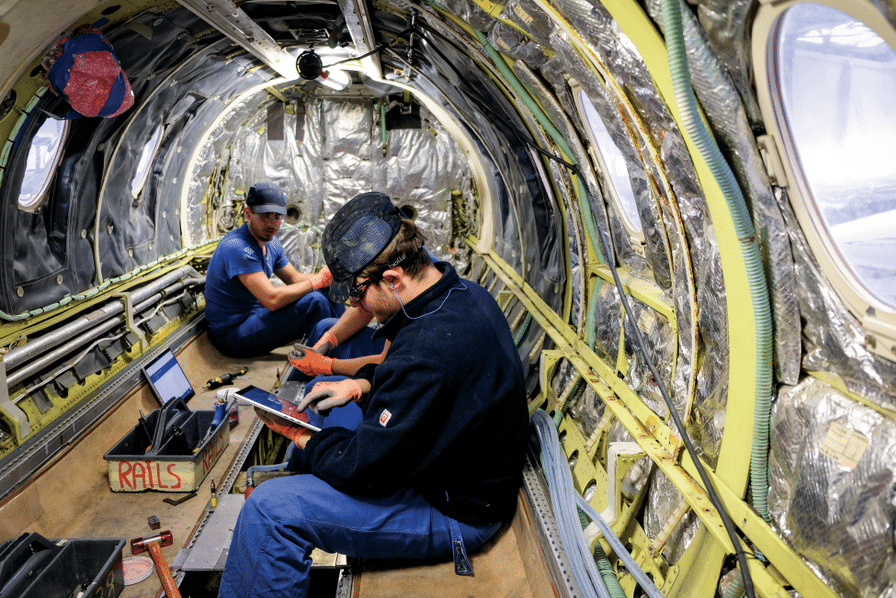In a sector as competitive as aerospace, every managerial decision can have significant repercussions on a company’s performance. Lars Wagner, a seasoned engineer with an impressive background, has recently been appointed to lead the commercial aircraft division of Airbus. This wise choice reflects the ambitions of the European manufacturer, which seeks to optimize its production lines in the face of a substantial order book. With sharp expertise gained in major companies, notably as a leader at MTU, Wagner positions himself as a true strategic asset. His past experience at Airbus has allowed him to develop an intimate knowledge of manufacturing processes, a crucial skill in a context where digitalization and operational efficiency are at the heart of industrial challenges. As he prepares to take office in 2026, he will not only have to supervise production but also skillfully navigate a complex environment, where continuous improvement and supply chain resilience become essential priorities.

In the dynamic universe of aerospace, the necessity to optimize production while maintaining high quality standards is crucial. Lars Wagner, a recognized engineer, takes the reins of Airbus in 2026 to lead the commercial division. His career makes him a major asset for the company, especially in an industrial context where challenges abound.
Table des matières
ToggleA Rich Background in Engineering and Leadership
Lars Wagner began his career at Airbus from 2003 to 2015. This period was marked by significant skill enhancement, both in technical and managerial aspects. He accumulated valuable experience on production lines, notably in the pre-assembly factories in Hamburg. It is this knowledge that fuels his innovative vision for aerospace production.
After his time at Airbus, he took the helm at MTU Aero Engines, a prestigious engine manufacturer. In January 2023, he was appointed executive chairman of the company, a role that allowed him to strengthen his skills in industrial outsourcing and supply chain management. This experience becomes a true passport for his future mission at Airbus, marked by an order book exceeding 8700 aircraft.
Production and Contemporary Challenges in the Aerospace Industry
The aerospace world faces several challenges, particularly a growing demand for commercial aircraft and increased pressure to meet tight delivery deadlines. Lars Wagner, known for his pragmatic approach, will need to address various issues, such as managing suppliers and optimizing production processes.
Recent reports from Airbus indicate that the manufacturer must multiply its production to meet demand. Forecasts estimate a 50% increase in production by 2030. This requires close collaboration with subcontractors to avoid bottlenecks. Lars Wagner must then implement tailored strategies to optimize the value chain, constantly innovating to achieve his production goals.
Meanwhile, a recent study showed that about 70% of aerospace companies report supply chain-related issues. This underscores the importance of an expert like Wagner, capable of managing these challenges with a coherent and integrated vision of the sector.
The Keys to Lars Wagner’s Success at Airbus
To succeed at Airbus, Lars Wagner must combine his knowledge of industrial processes with modern strategies for digital transformation. Here are some recommendations he might consider:
- Strengthen collaboration with suppliers: This involves more transparent working models and performance-based evaluation systems.
- Invest in digitalization: By integrating digital tools such as digital twins and AI, he could optimize production lines and anticipate problems before they arise.
- Innovate with R&D: Encouraging research and development initiatives to improve not just products, but also processes would help keep Airbus at the forefront of innovation.
By applying these recommendations, he will likely be able to tackle the challenges related to increased production while maintaining the quality standards that have built Airbus’s reputation.
Lars Wagner’s work will be crucial for the transition to an aerospace industry 4.0, where connectivity and automation become markers of success. This requires not only technical skills but also a human approach, highlighting talent and diversity in the sector.
With Lars Wagner, Airbus appears ready to take a new step in its evolution, integrating industrial innovation and digital transformation to be not only a player but a leader in the global market for commercial aircraft.






